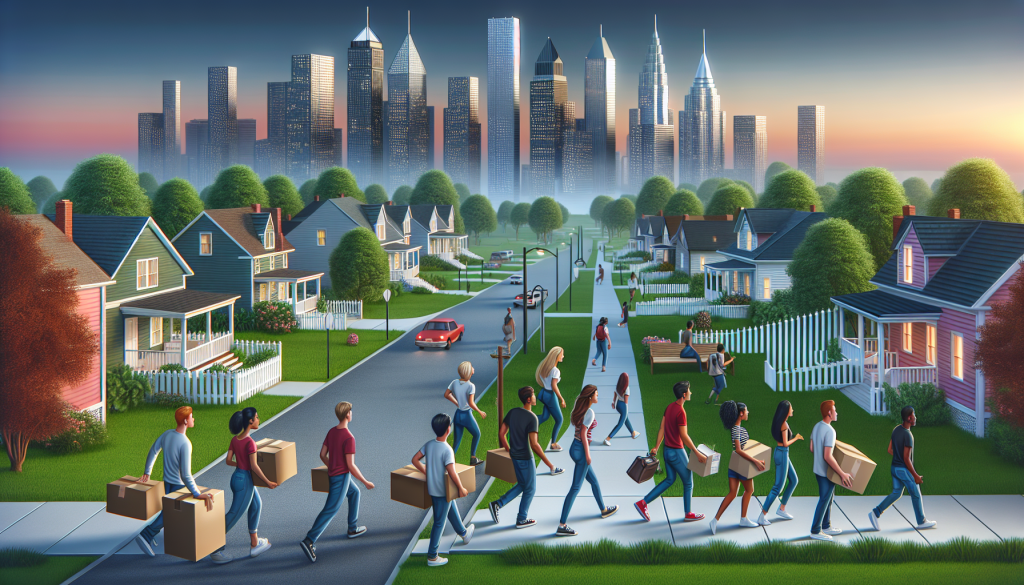
Urban Exodus: Why Millennials are Trading Skyscrapers for Suburbs
Urban Exodus: Why Millennials are Trading Skyscrapers for Suburbs
The bustling city has always been a symbol of opportunity and the epitome of success. For decades, young professionals have flocked to urban areas in search of career growth and the fast-paced lifestyle that came with it. However, a recent trend has emerged as more and more millennials are trading the concrete jungle for the suburban life. This shift in living preferences has left many wondering, why are millennials choosing to leave the city behind? Let’s take a closer look at the growing phenomenon of urban exodus and the reasons behind it.
The Drawbacks of City Living
Millennials, often referred to as the “digital generation,” have grown up with technology at their fingertips. They are accustomed to convenience, speed, and efficiency in every aspect of their lives. However, in big cities, where everything moves at a lightning pace, these conveniences come at a cost. City dwellers face high living expenses, long commutes, and overcrowding, which can lead to a lack of personal space and time. As such, the allure of city living has begun to fade for many millennials.
The Appeal of Suburban Lifestyle
While cities offer a sense of excitement and endless opportunities, suburbs provide the tranquility and stability that many young professionals crave. With spacious homes, lower living costs, and a slower pace of life, the suburbs offer millennials a more sustainable and affordable lifestyle. Additionally, suburbs are often closer to nature, and with the rise of remote work, many millennials are taking advantage of the flexibility to work from a more scenic location.
A Shift in Career Priorities
The traditional climb up the corporate ladder is no longer the ultimate goal for many millennials. Instead, this generation is placing a greater emphasis on work-life balance and personal fulfillment. With this shift in values, many millennials are making career choices that align with their personal interests and passions, even if it means sacrificing higher salaries and living in big cities.
Technology and Connectivity
Contrary to popular belief, suburban living does not equate to being disconnected from the world. Thanks to advancements in technology, people can stay connected regardless of their location. From online shopping to video conferencing, millennials have the convenience of accessing the same services and opportunities as city dwellers while enjoying a more peaceful and affordable lifestyle.
The Impact on the Real Estate Market
As more millennials opt for suburban living, the demand for urban dwellings has decreased, resulting in a shift in the real estate market. Suburban home sales have seen a significant increase, while city properties have experienced a decline in sales and rental prices. As a result, developers and investors are shifting their focus to suburban areas, fulfilling the demand for affordable and spacious homes.
The Final Verdict
Despite the appeal of big cities, the urban exodus shows a shift in priorities and values among the millennial generation. Their desire for a more affordable, fulfilling, and balanced lifestyle has led them to embrace suburban living. As this trend continues, it will be interesting to see how cities and suburbs evolve to cater to the changing preferences of the younger generation.
In conclusion, the urban exodus of millennials from skyscrapers to suburbs is driven by various factors, including the drawbacks of city living, the appeal of a suburban lifestyle, career priorities, technology, and the impact on the real estate market. With a new generation comes new priorities, and the shift towards suburban living is a reflection of the changing values of millennials.
